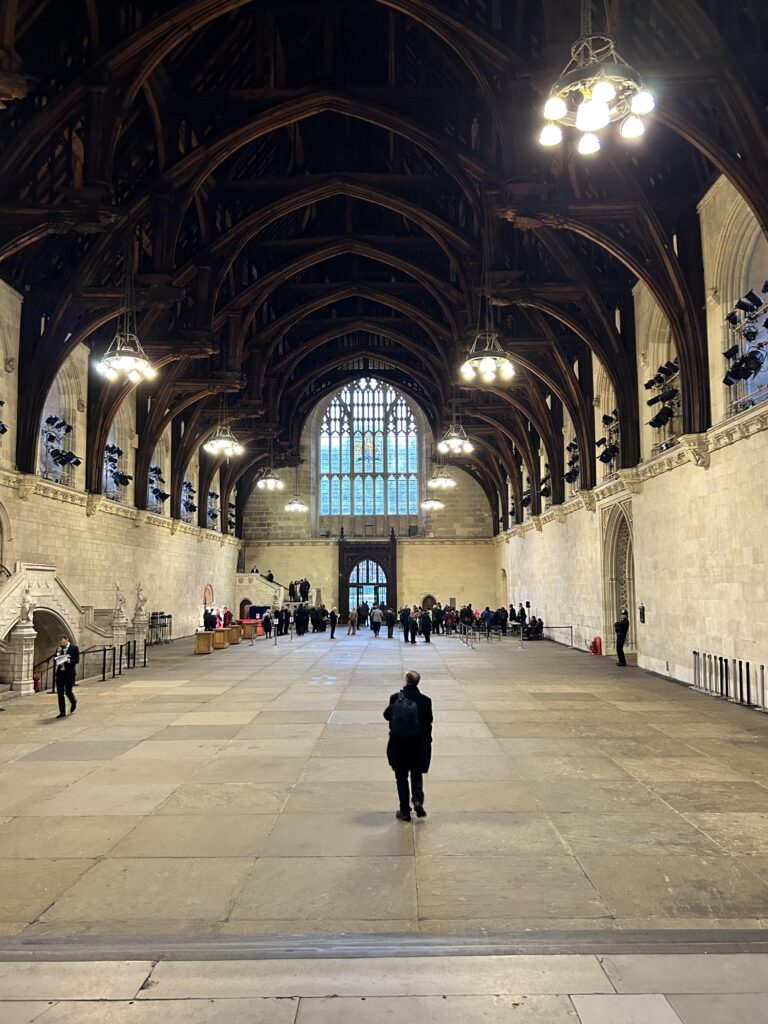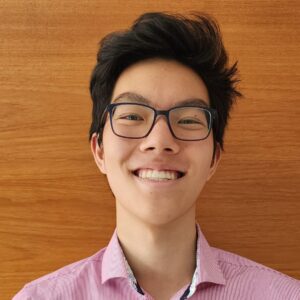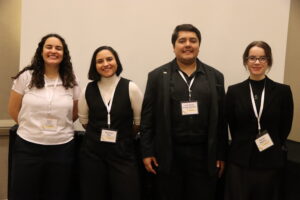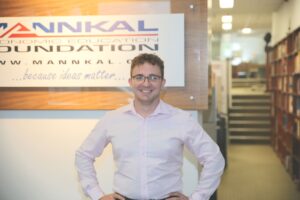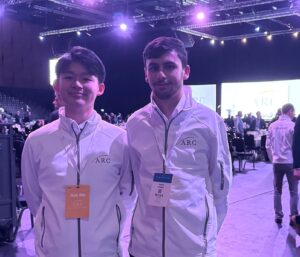Arriving at the IEA, I had no idea what to expect of such a celebrated think tank, and indeed, workplace. Even the UK itself was a land of stereotypes for me – made up of tea-drinkers and dreary weather day-in, day-out. However, stepping onto the Tube for the final time on an uncharacteristically sunny day, I felt strangely at home in a place thousands of kilometres away from Perth.
Reflecting on the Tube ride into Westminster Station, it seemed as though the final few weeks had flown by. After settling into the IEA and getting used to the day-to-day schedule, workplace and tasks, my appointment as head intern brought a whole new range of opportunities for growth. Although at first nervous to take on the responsibilities, I quickly found myself thriving in the role, particularly enjoying the privilege of helping the other interns grow in their interest areas – whether that be in digital design or research writing. The role also grew my understanding of project management and leadership, rapidly teaching me that good leadership starts from championing your individual colleagues rather than yourself. From managing the operational complexities of a book club event (from keeping track of everything from recording the event, reception set-up, photography, welcoming guests and speaker coordination) to organising social events and nights out (dinners, mini golf and drinks at the local pub, to name a few) for the intern group, I found myself quickly growing into an individual who took full responsibility for his team, successes, and of course inevitable mistakes.
Apart from the leadership role I undertook, the final weeks also pushed me out of my comfort zones in ways I hadn’t expected. For one, my manager, Sam, organised a panel debate in which three other interns and I were to debate the topic: “Are diversity quotas an appropriate solution to inequality?”. Set up in a talk-show style where we had two minutes to present our central arguments and then were at the mercy of questions from the knowledgeable (but ruthless) IEA staff, I learnt to communicate my perspective in a concise and persuasive way, along with quickly countering my opponents’ remarks. As someone with little to no experience in debating, it helped to improve my public speaking skills and put my knowledge of liberal philosophy to the test, namely drawing on principles such as the primacy of the individual, the benefits of bottom-up policy making and the intrinsic equality of all humans.
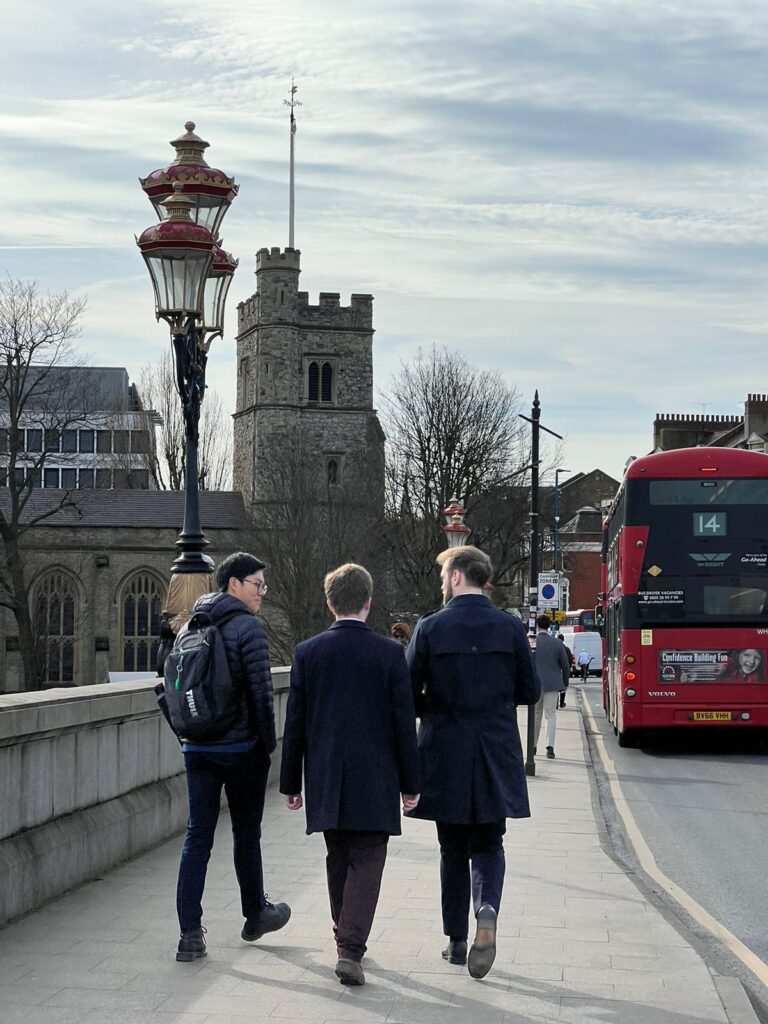
Nicholas Tan in London
Life outside work was a time to explore a city, country and region bursting with history and stories to tell. The advantage of being in a cultural capital like London is that there was no end of events, places and sights to see – in my short time I was able to go to my favourite artist’s concert, watch a Premier League game, and see two musicals (Phantom of the Opera and Hamilton) in West End. As a self-proclaimed ‘hiker’, on the weekends I headed off to the Cliffs of Dover, Seven Sisters and Darent Valley to see what the British countryside had to offer (spoiler: lots of farmland, foggy weather and one, very formidable cow). I also got the chance to visit Vienna and Budapest, both places which are jaw-droppingly beautiful with storied histories and architecture to match.
Back at work, I prepared for one of the other ‘keystone’ events of the internship – a one hour presentation and Q&A on a topic of my choosing which was to incorporate my learnings from the past weeks to produce a policy recommendation. In collaboration with another intern, we decided to tackle the issue of police brutality, corruption and inefficiency, a problem which has risen to the forefront in the developed world spearheaded by movements such as BLM. After days of planning, research and consultation with IEA staff, we presented our PPP (Private Public Policing) model. Founded on the common complaint that police are disconnected from the communities they work with, and lack the resources and funding needed to be truly effective, we recommended a three-layered approach in which privately-run community police forces and security companies would work together to combat local crime, with a specialised public force focused on stopping organised and ‘severe’ crime acting to provide oversight on these respective functions. We also discussed how the model would be funded, how it would bring performance and cost gains, and why it would be the most effective way of dealing in crime. The presentation taught me how to draw together my understanding of economic theories and public policy implementation to effectively communicate my position on a topic I had otherwise never previously encountered. It was also an ‘aha!’ moment through which I was able to truly reflect on the growth I had undergone throughout the internship.
Prior to beginning at the IEA, my knowledge of classical liberalism and free-market economics was strong in theory, but not in practice. I knew of all the great thinkers like Hayek, Mises and Buchanan, but often those intellectuals stayed just that – writers from an era past-gone with interesting and counter-cultural arguments. Through working in a storied thinktank like the IEA and living and breathing these economic ideas, their theories came to life, sparking a newfound appreciation for how they continue to resonant in the modern era, speaking to everything from policing methods to the way we understand dieting laws.
As I look back at my time at the IEA, it is with a great appreciation for the staff and interns I was able to work with. The privilege to work and live in another country, particularly a global metropolis like London, is something I did not take lightly, and there was seldom a day – rain or shine – where I would walk past Big Ben and Parliament without pausing to reflect on how amazing it was to be in a place where the very principles of the democracy and society Australians live every day was founded. To anyone currently in the Mannkal scholarship program, or to those who might be thinking about applying, take the chance and apply to the IEA – it’ll be a professional and life experience which you won’t forget. Finally, to the Mannkal team – particularly Ron, Kate, Nicola and all my fellow scholars – thank you for supporting and encouraging me to take the leap.

